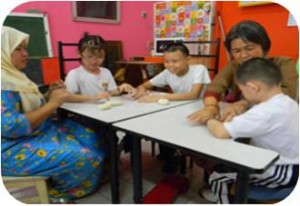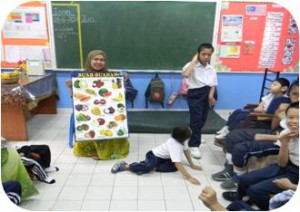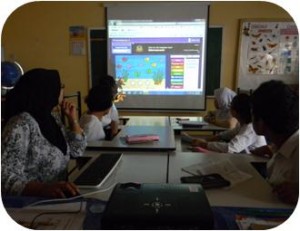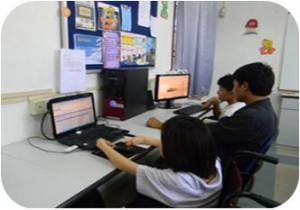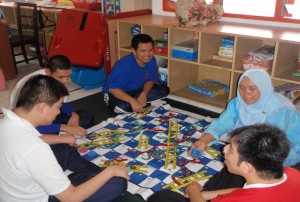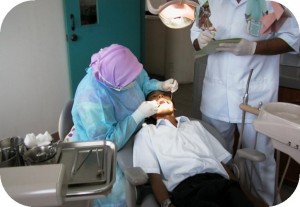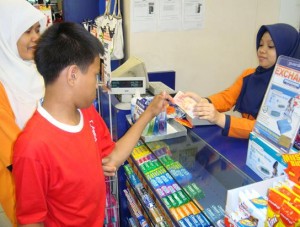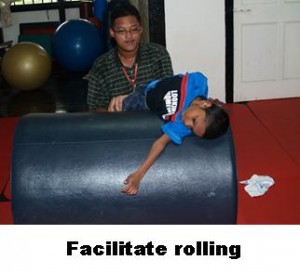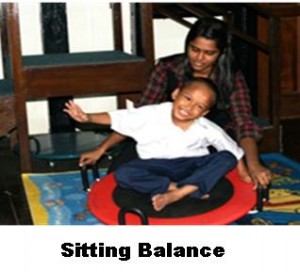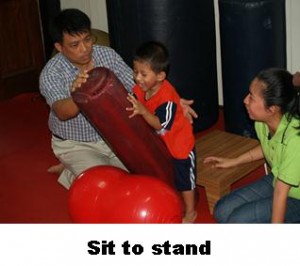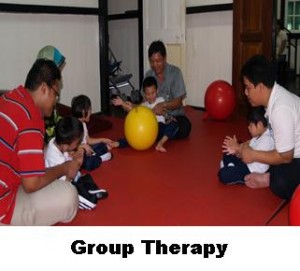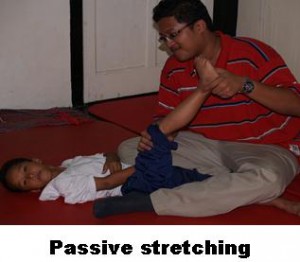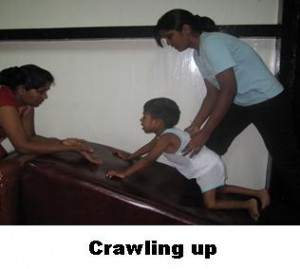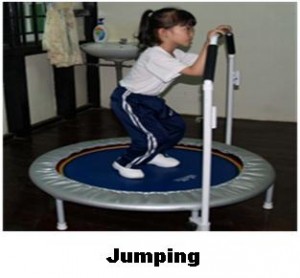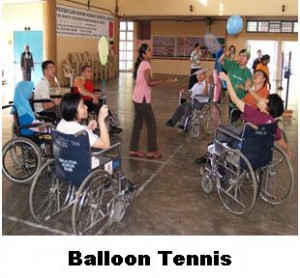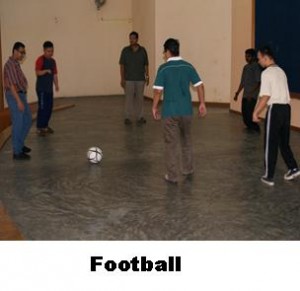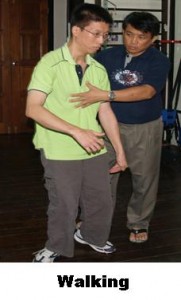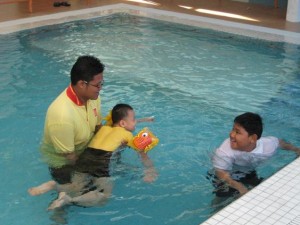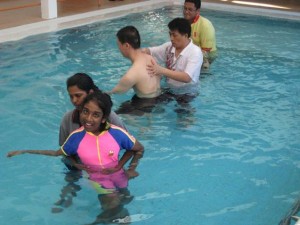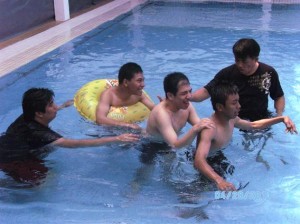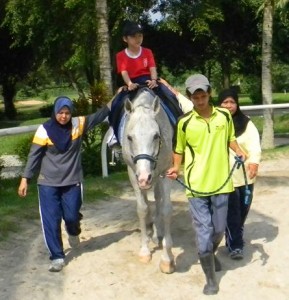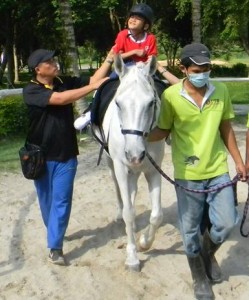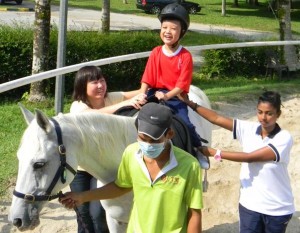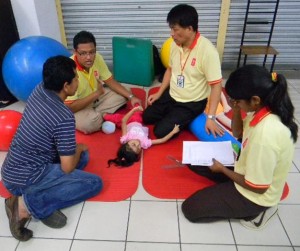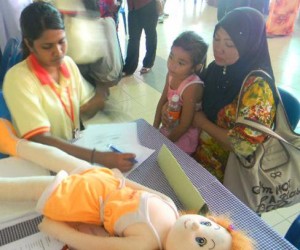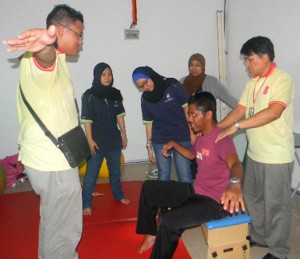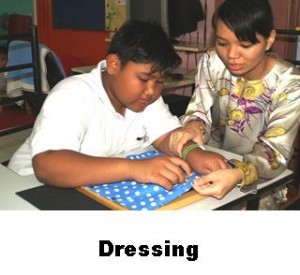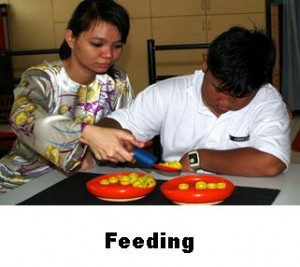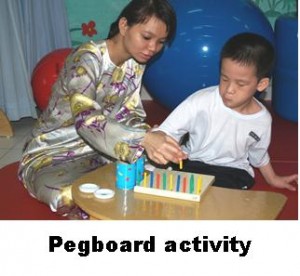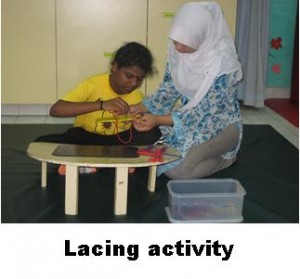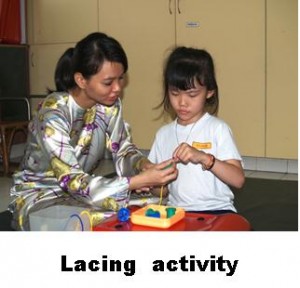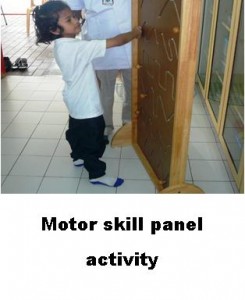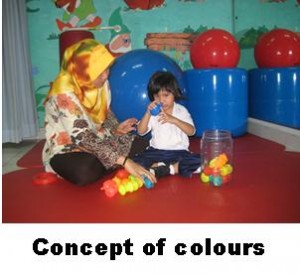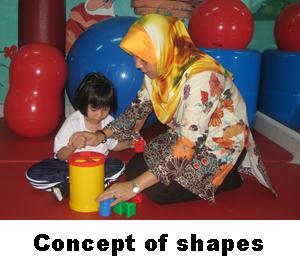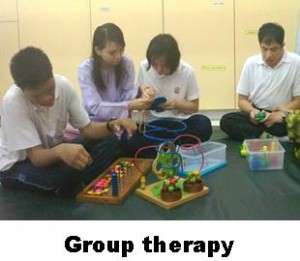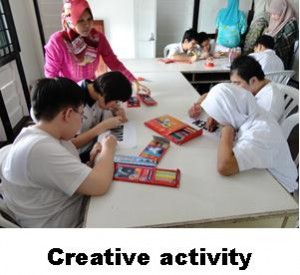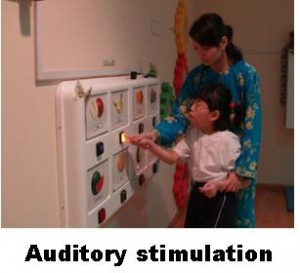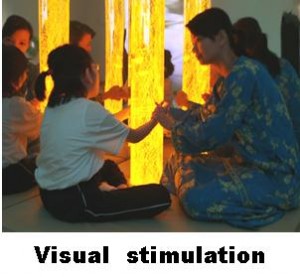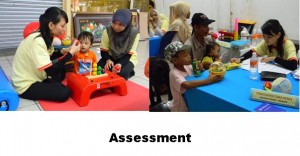School Services
Early Intervention Programme
Children between the ages of five and six are placed in EIP to receive programmes designed to their individual needs. They are also instructed in gross motor skills, manipulative skills, perceptual skills, self care skills and social competence, pre-numbering, colouring and language development. In this class, some children may take a longer time to enable and suit themselves to the school environment.
Normal School Curriculum
The children who are academically inclined are taught KBSR curriculum tailored to their individual needs. Academic classes are divided into two levels. Level 1 for year 1,2,3, and level 2 for year 4,5,6. The students are taught Bahasa Melayu, English, Science, Mathematics and Arts. Those who are academically inclined, are also taught skills in computer. Computer skills are important for students because they will be sitting for the UPSR examination using the computer.
Non-Academic Curriculum
Children with multiple disabilities are taught special curriculum which stresses on daily living skills. Vocational skills are also taught.
The Audio Visual Room
The Audio Visual Aids Room helps to enhance the classroom learning process, ranging from nursery rhymes to language and mathematics. We instruct them in the learning process and to watch the Educational TV and CD Programmes. We enrich the student’s skills (personal development programme) through Educational CDs and we provide personal coaching for UPSR students via these CD’s.
Computer Literacy Programme
Computers not only aid in reinforcing classroom lessons but also serve as a mode of communication to non-verbal CP children. More students are being encouraged to become computer savvy. Now we have five children continuing an Information Technology Programme (IT) at RIMA College.
Co-Curricular Activities
Girl Guides and Boy Scouts are two uniformed groups in our special education school. These form part of the school co-curricular activities. They hold their weekly meetings, once a fortnight on Wednesdays. They are actively involved in activities which help to mould their character through the specially modified programmes tailored according to their special needs. There are also indoor camps and campfire similar to activities of normal guides and scouts. Our guiders and scouters undergo training courses and sit for various tests in order to upgrade their skills and knowledge in guiding and scouting.
Recreational Activities
Recreational activities such as dancing, acting, karaoke singing and learning to play games are activities that help to build the confidence of the children. Study tours and outings are organized from time to time.
Teeth & Good Oral Health Care
Teeth & oral care need to be instilled in children from a very young age. The teeth-brushing drills are carried out by nurses from the Klinik Kesihatan Pergigian Kempas. Dental health checks and treatment are done by the dental staff from Klinik Pakar Pergigian Pediatrik, HSA, headed by Dr. Chan Lee Hsiah.
Educational Outings
Teach children how to buy things in the supermarket and do payment at counters.
Teach children public signs in public places. eg. toilet,phone, direction and extra.
Teach children how to buy and eat food in public area.
Physiotherapy Services
Physiotherapy is an important treatment technique which helps the Cerebral Palsy child to move towards the pathway of independent lifestyle. There are 75 school going students from the ages of 5 to 17 years, 41 students from the workshop (18 years and above), 5 EIPIC students and 11 outpatients managed by Physiotherapists as individual, in group therapy and in recreational play.
Therapy Activities
Hydrotherapy
helps in reducing spasticity, improving breathing control, balance and co-ordination. There will be half an hour sessions, 5 times per week, basically on Tuesdays, Thursdays and Fridays.
Hippotherapy
is carried out with 12 students every alternate Wednesday at the Horse Riding School, UTM Skudai, Johor Bahru.
Out Reach Programme
Physiotherapy department staff participated in “Outreach Programmes” to extend the therapy services at public area.
Home Management Programme
Physiotherapists with other staff visit students’ homes during school holidays to train the parents on how to modify the furniture and apply it for home exercise programmes.
Physiotherapists play a special and important role in improving the mobility of our children and enhancing their gross motor functional activities.
Occupational Therapy Services
Occupational Therapy helps Cerebral Palsy children achieve independence in activities involving daily living skills, Physical, cognitive and motor skills, enhance self esteem and sense of accomplishment. There are 63 school students, 14 outpatients, and 5 EIPIC students involved in therapy sessions. Sensory therapy sessions involve 25 school students and 3 outpatients.
Therapy and Activities
Activities Involving Daily Living Skills
Routine activities such as feeding, dressing, bathing and toileting that children tend to do everyday without needing assistanc
Fine Motor Skills
Fine motor skill activities help children practice the skills required to handle or manipulate small objects with their fingers.
Visual Motor Skills
Visual motor skills are the skills a child uses to pair together activities that use the eyes and the hands.
Cognitive and Perception
Cognitive is the mental process involved in perception, learning, memory, and thinking.
Group Activities
Group activities help children improve socialization and social skills.
Multisensory Stimulation
Helps to stimulate and enhance the senses of touch, sight, smell and hearing.
Outreach program
Outreach programme was done in Kulai to provide public awareness on disabled children, free medical check up, assessment, consultation and home management programme.
Speech Therapy Service
Speech therapy provides assessment and intervention to CP children who have:.
Speech Delay
Facilitate children to produce correct sound production (articulation), so other people can understand them.
- Increase awareness production of /p/ sound
- Consolidate production of /t/ at single word level
- Improve breathing pattern using diaphragm
Language Delay
Encourage children to expand their language understanding (receptivity) and language production (expressiveness).
- Increase understanding of everyday objects
- Encourage naming everyday objects
- Facilitate production of meaningful sound-bubble/pop
- Elicit 3 word utterances (Subject + Verb + Object)
- Elicit production of action verbs (drink & comb)
- Consolidate understanding of preposition concept (on & under)
Communication Delay
Children develop new modes of communication to express their feelings, needsand interests.
- Request puzzle using gesture ‘I want’
- Request toy using Picture Exchange Communication
- Use gesture to name animals (Makaton signs)
Oral-Motor Difficulties (Provide oral-motor exercise)
To reduce drooling and improve oral-motor abilities in order to produce intelligible speech.
- Tongue skipping rocks
- Lip closure exercise
- Tongue strengthening
Feeding and Swallowing Difficulties
Increase children’s ability during eating and swallowing.
- Encourage lip closure during eating solid food
- Encourage drinking water
- Facilitate drink water using straw
Early Intervention Programme for Infant And Children (EIPIC)
We started with a small group of three children and since then enrolment has increased to six children between the ages of 3 to 5 years old. The success of an early intervention program depends upon the integration of the child’s individual program and interdisciplinary management by a team of professionals who are needed to meet the specific needs of both child and family. The emphasis of intervention should be the child within the family unit rather than the child alone.
It is often effective with young children involved in group setting. A child who is reluctant to cooperate in an individual setting will join other children who are eagerly participating an activity. The child will benefit from observing other children and can be guided by an adult into variations of the activity to meet individual needs.
Play not only provides a means of exploring the environment but also gives the opportunity for repetition of skills mastery. The most important is pleasure.
Sports And Training
1. Sports and training activities resume from January to December according to schedule :-
i) Athletics – Training in school hall, Gymnasium and Larkin Stadium.
ii) Boccia – Training in school hall.
iii) Tenpin Bowling- Training in Bowling center, gymnasium and school hall.
2. 1 of our athlete is at National Sports Council Bukit Jalil, selected for centralized training
in preparation for the Asia Paragames 2010, Guangzhou China.
3. 3 athletes are involved in the Johor Paralympic Games to be held from 20th— 27th July 2010.
Achievements (medal count) Athletics : – 2 golds, 2 silvers, Tenpin Bowling – 2 silvers.
4. 6 athletes and 6 coaches involved in Paralympic Games XV, Melaka from 20th -27th November 2010. Achievements (medal count) Athletics :– 4 golds, 1 silver and 1 bronze. Boccia – 1 silver and 1 bronze.
5. 1 of our athletes represented Malaysia at the Asia Paragames Guangzhou China from 16th -23rd December 2010.
Sheltered Workshop
The Sheltered Workshop situated at the basement of the building is used by Cerebral Palsy school leavers who are unable to pursue further studies and do not have skills to secure jobs in the open job market.At the workshop the staff weave floor mats, rugs, embroidery, patchwork and knitting.
Apart from the workshop activities, they frequently attend social functions such as thanksgiving gathering, carnivals and annual festivals organized by individual organisations. Booths are set up to sell the products.
![]()
